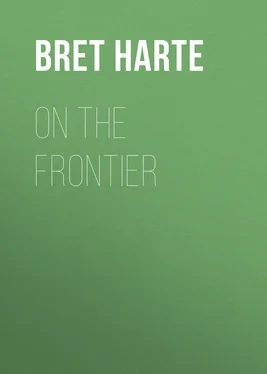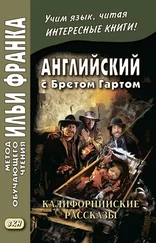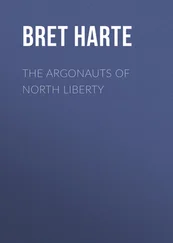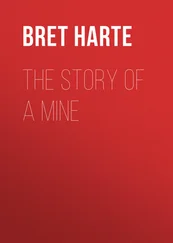Bret Harte - On the Frontier
Здесь есть возможность читать онлайн «Bret Harte - On the Frontier» — ознакомительный отрывок электронной книги совершенно бесплатно, а после прочтения отрывка купить полную версию. В некоторых случаях можно слушать аудио, скачать через торрент в формате fb2 и присутствует краткое содержание. Жанр: foreign_sf, literature_19, foreign_antique, foreign_prose, на английском языке. Описание произведения, (предисловие) а так же отзывы посетителей доступны на портале библиотеки ЛибКат.
- Название:On the Frontier
- Автор:
- Жанр:
- Год:неизвестен
- ISBN:нет данных
- Рейтинг книги:4 / 5. Голосов: 1
-
Избранное:Добавить в избранное
- Отзывы:
-
Ваша оценка:
- 80
- 1
- 2
- 3
- 4
- 5
On the Frontier: краткое содержание, описание и аннотация
Предлагаем к чтению аннотацию, описание, краткое содержание или предисловие (зависит от того, что написал сам автор книги «On the Frontier»). Если вы не нашли необходимую информацию о книге — напишите в комментариях, мы постараемся отыскать её.
On the Frontier — читать онлайн ознакомительный отрывок
Ниже представлен текст книги, разбитый по страницам. Система сохранения места последней прочитанной страницы, позволяет с удобством читать онлайн бесплатно книгу «On the Frontier», без необходимости каждый раз заново искать на чём Вы остановились. Поставьте закладку, и сможете в любой момент перейти на страницу, на которой закончили чтение.
Интервал:
Закладка:
Bret Harte
On the Frontier
AT THE MISSION OF SAN CARMEL
PROLOGUE
It was noon of the 10th of August, 1838. The monotonous coast line between Monterey and San Diego had set its hard outlines against the steady glare of the Californian sky and the metallic glitter of the Pacific Ocean. The weary succession of rounded, dome-like hills obliterated all sense of distance; the rare whaling vessel or still rarer trader, drifting past, saw no change in these rusty undulations, barren of distinguishing peak or headland, and bald of wooded crest or timbered ravine. The withered ranks of wild oats gave a dull procession of uniform color to the hills, unbroken by any relief of shadow in their smooth, round curves. As far as the eye could reach, sea and shore met in one bleak monotony, flecked by no passing cloud, stirred by no sign of life or motion. Even sound was absent; the Angelus, rung from the invisible Mission tower far inland, was driven back again by the steady northwest trades, that for half the year had swept the coast line and left it abraded of all umbrage and color.
But even this monotony soon gave way to a change and another monotony as uniform and depressing. The western horizon, slowly contracting before a wall of vapor, by four o’clock had become a mere cold, steely strip of sea, into which gradually the northern trend of the coast faded and was lost. As the fog stole with soft step southward, all distance, space, character, and locality again vanished; the hills upon which the sun still shone bore the same monotonous outlines as those just wiped into space. Last of all, before the red sun sank like the descending host, it gleamed upon the sails of a trading vessel close in shore. It was the last object visible. A damp breath breathed upon it, a soft hand passed over the slate, the sharp pencilling of the picture faded and became a confused gray cloud.
The wind and waves, too, went down in the fog; the now invisible and hushed breakers occasionally sent the surf over the sand in a quick whisper, with grave intervals of silence, but with no continuous murmur as before. In a curving bight of the shore the creaking of oars in their rowlocks began to be distinctly heard, but the boat itself, although apparently only its length from the sands, was invisible.
“Steady, now; way enough.” The voice came from the sea, and was low, as if unconsciously affected by the fog. “Silence!”
The sound of a keel grating the sand was followed by the order, “Stern all!” from the invisible speaker.
“Shall we beach her?” asked another vague voice.
“Not yet. Hail again, and all together.”
“Ah hoy—oi—oi—oy!”
There were four voices, but the hail appeared weak and ineffectual, like a cry in a dream, and seemed hardly to reach beyond the surf before it was suffocated in the creeping cloud. A silence followed, but no response.
“It’s no use to beach her and go ashore until we find the boat,” said the first voice, gravely; “and we’ll do that if the current has brought her here. Are you sure you’ve got the right bearings?”
“As near as a man could off a shore with not a blasted pint to take his bearings by.”
There was a long silence again, broken only by the occasional dip of oars, keeping the invisible boat-head to the sea.
“Take my word for it, lads, it’s the last we’ll see of that boat again, or of Jack Cranch, or the captain’s baby.”
“It DOES look mighty queer that the painter should slip. Jack Cranch ain’t the man to tie a granny knot.”
“Silence!” said the invisible leader. “Listen.”
A hail, so faint and uncertain that it might have been the long-deferred, far-off echo of their own, came from the sea, abreast of them.
“It’s the captain. He hasn’t found anything, or he couldn’t be so far north. Hark!”
The hail was repeated again faintly, dreamily. To the seamen’s trained ears it seemed to have an intelligent significance, for the first voice gravely responded, “Aye, aye!” and then said softly, “Oars.”
The word was followed by a splash. The oars clicked sharply and simultaneously in the rowlocks, then more faintly, then still fainter, and then passed out into the darkness.
The silence and shadow both fell together; for hours sea and shore were impenetrable. Yet at times the air was softly moved and troubled, the surrounding gloom faintly lightened as with a misty dawn, and then was dark again; or drowsy, far-off cries and confused noises seemed to grow out of the silence, and, when they had attracted the weary ear, sank away as in a mocking dream, and showed themselves unreal. Nebulous gatherings in the fog seemed to indicate stationary objects that, even as one gazed, moved away; the recurring lap and ripple on the shingle sometimes took upon itself the semblance of faint articulate laughter or spoken words. But towards morning a certain monotonous grating on the sand, that had for many minutes alternately cheated and piqued the ear, asserted itself more strongly, and a moving, vacillating shadow in the gloom became an opaque object on the shore.
With the first rays of the morning light the fog lifted. As the undraped hills one by one bared their cold bosoms to the sun, the long line of coast struggled back to life again. Everything was unchanged, except that a stranded boat lay upon the sands, and in its stern sheets a sleeping child.
CHAPTER I
The 10th of August, 1852, brought little change to the dull monotony of wind, fog, and treeless coast line. Only the sea was occasionally flecked with racing sails that outstripped the old, slow-creeping trader, or was at times streaked and blurred with the trailing smoke of a steamer. There were a few strange footprints on those virgin sands, and a fresh track, that led from the beach over the rounded hills, dropped into the bosky recesses of a hidden valley beyond the coast range.
It was here that the refectory windows of the Mission of San Carmel had for years looked upon the reverse of that monotonous picture presented to the sea. It was here that the trade winds, shorn of their fury and strength in the heated, oven-like air that rose from the valley, lost their weary way in the tangled recesses of the wooded slopes, and breathed their last at the foot of the stone cross before the Mission. It was on the crest of those slopes that the fog halted and walled in the sun-illumined plain below; it was in this plain that limitless fields of grain clothed the fat adobe soil; here the Mission garden smiled over its hedges of fruitful vines, and through the leaves of fig and gnarled pear trees: and it was here that Father Pedro had lived for fifty years, found the prospect good, and had smiled also.
Father Pedro’s smile was rare. He was not a Las Casas, nor a Junipero Serra, but he had the deep seriousness of all disciples laden with the responsible wording of a gospel not their own. And his smile had an ecclesiastical as well as a human significance, the pleasantest object in his prospect being the fair and curly head of his boy acolyte and chorister, Francisco, which appeared among the vines, and his sweetest pastoral music, the high soprano humming of a chant with which the boy accompanied his gardening.
Suddenly the acolyte’s chant changed to a cry of terror. Running rapidly to Father Pedro’s side, he grasped his sotana, and even tried to hide his curls among its folds.
“‘St! ‘st!” said the Padre, disengaging himself with some impatience. “What new alarm is this? Is it Luzbel hiding among our Catalan vines, or one of those heathen Americanos from Monterey? Speak!”
“Neither, holy father,” said the boy, the color struggling back into his pale cheeks, and an apologetic, bashful smile lighting his clear eyes. “Neither; but oh! such a gross, lethargic toad! And it almost leaped upon me.”
Читать дальшеИнтервал:
Закладка:
Похожие книги на «On the Frontier»
Представляем Вашему вниманию похожие книги на «On the Frontier» списком для выбора. Мы отобрали схожую по названию и смыслу литературу в надежде предоставить читателям больше вариантов отыскать новые, интересные, ещё непрочитанные произведения.
Обсуждение, отзывы о книге «On the Frontier» и просто собственные мнения читателей. Оставьте ваши комментарии, напишите, что Вы думаете о произведении, его смысле или главных героях. Укажите что конкретно понравилось, а что нет, и почему Вы так считаете.












